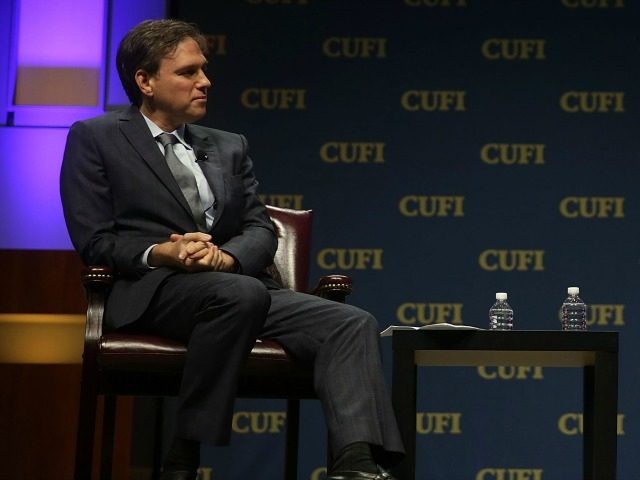Bret Stephens of the New York Times declared in his column Friday that he is still a “NeverTrumper”: “I still wish Hillary Clinton were president,” he wrote.
His reason: “character does count,” and he alleges that President Donald Trump lacks it — regardless of the numerous policy successes of his first year in office, which Stephens admits “gives me pause.” But “character” is exactly why voters chose Trump, and why most who did so would do so again.
Set aside, for the moment, Stephens’s rather humorous implication that Hillary Clinton possesses greater “character” than Trump — after a career of deceit and failure, and after a year of sore-loser tantrums in which she has blamed everyone else for her defeat. (How many Democrats would “still wish Hillary Clinton were president”?)
The core of Stephens’s argument is that the price of Trump’s controversial rhetoric is not worth the gain in Trump’s policies.
Here, Stephens allows himself a few rhetorical excesses of his own. He compares Trump to Juan Perón and Hugo Chávez. He calls the fact that Trump holds large rallies “demagogic” — as if Barack Obama, and presidents before him, never campaigned before crowds of supporters. He even accuses the president, a teetotaler, of “intemperance.” And he goes for the cheapest shot of all, accusing Trump of “white-identity politics,” without proof or elaboration.
But more than that, Stephens misses the point of what “character” actually is, and how Trump’s character is the reason for both his victory and his success.
In much of the English-speaking world, “character” is a synonym for strength — not just power or will, but the particular ability to withstand challenges and to recover from setbacks. Trump has displayed that quality in abundance, especially in overcoming an absurdly hostile mainstream media.
“Character” is what enabled Trump to withdraw from the Paris Climate Accords, against the opinion of the world and the counsel of most of his advisers. “Character” is what allowed him to brush off the dust of the Obamacare debacle and to pass tax reform, eliminating Obamacare’s individual mandate. And “character” is what guided Trump to recognize Jerusalem as Israel’s capital — an achievement Stephens could barely stand to acknowledge.
Winston Churchill was not admired for his personal habits. He used foul language, smoked incessantly, and ate and drank to self-indulgent excess. He squabbled constantly and bitterly with the members of his government, and was often shockingly rude, even skipping President Franklin Delano Roosevelt’s funeral.
Yet Churchill roused the free world to victory. Who would rather Britain had been led in wartime by a more refined, more polite parliamentarian?
Stephens’s worries about Trump “defining deviancy down” in our politics are not without merit. But they are also overblown. For all his social media bluster, President Trump has, unlike his professorial predecessor, obeyed the constraints of the Constitution, respected the decisions of the courts, and made himself available to journalists. And the nastiness of American politics today owes more to Obama’s deliberate strategy of division than Trump’s tweets.
Nastiness is something Stephens knows well. In response to a recent offer of reconciliation, he suggested on Twitter that this author “spend a year apologizing to the victims of Roy Moore’s predations,” a ritual shaming somehow never demanded of Hillary’s defenders.
A good part of “character” is not just fighting, but knowing when to stop — when to admit one’s mistakes and make peace with one’s rivals. Apparently, Stephens lacks the character to do so.
Joel B. Pollak is Senior Editor-at-Large at Breitbart News. He was named one of the “most influential” people in news media in 2016. He is the co-author of How Trump Won: The Inside Story of a Revolution, is available from Regnery. Follow him on Twitter at @joelpollak.

COMMENTS
Please let us know if you're having issues with commenting.